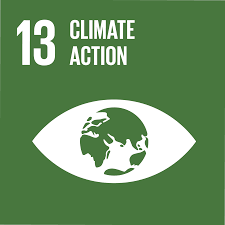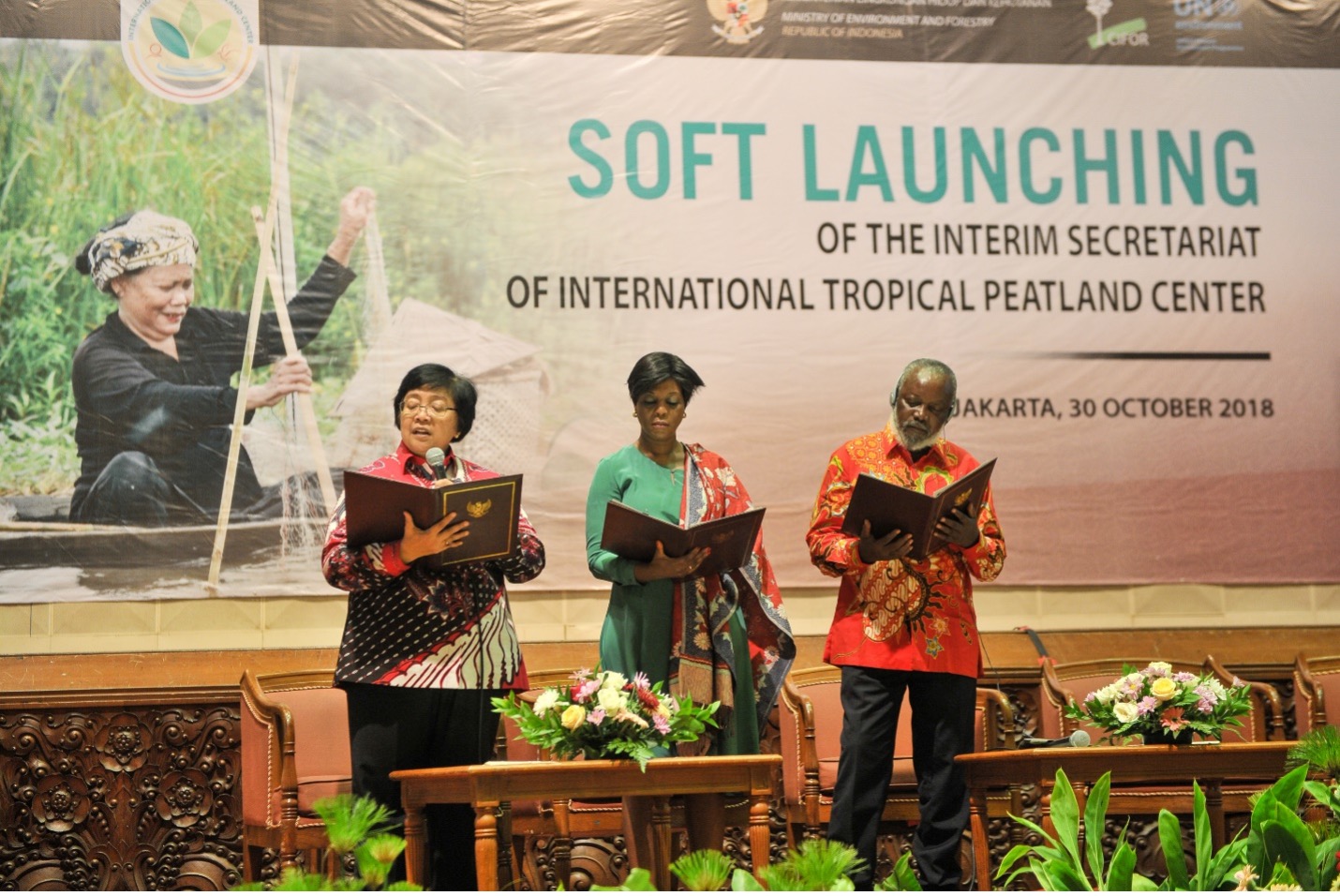 The Global Peatlands Initiative: Assessing, Measuring and Preserving Peat Carbon
Working to preserve the world’s largest terrestrial organic carbon stock
The Global Peatlands Initiative: Assessing, Measuring and Preserving Peat Carbon
Working to preserve the world’s largest terrestrial organic carbon stock

Challenges
Peatlands are vital, superpowered ecosystems that capture and store carbon, protect and host biodiversity, control water supply and quality, cool the atmosphere and produce food. Found in almost 170 countries, the international community is only beginning to understand its role in abating climate change. Peatlands cover only 3 percent of the global land area but store 30 percent of the world’s soil carbon. They contain twice as much carbon as the world’s forests. Greenhouse gas (GHG) emissions from drained or degraded peatlands account for 5 to 10 percent of global annual GHG emissions.
Towards a Solution
The Global Peatlands Initiative (GPI), led by the United Nations Environment Programme (UNEP) was launched in 2016 and seeks to develop and adopt new approaches to the conservation, restoration and sustainable management of peatlands, linking science to practice and policymaking. Four peat-rich tropical countries (the Republic of Congo (ROC), the Democratic Republic of Congo (DRC), Indonesia and Peru) are serving as the Initiative’s pilot countries. Over 46 partners have committed to working together to assess, measure and preserve peat carbon and biodiversity, sharing knowledge and experience through a South-South cooperation approach.
We promote healthy peatlands through their restoration and conservation as one of the fastest ways to tackle the climate and nature crisis and help countries to comply with major Multilateral Environmental Agreements (MEAs) and the Nationally Determined Contributions (NDCs) by including goals concerning peatlands to advance progress towards the Sustainable Development Goals (SDGs).
The 2nd Meeting of the GPI Partners in 2017 in Jakarta co-hosted by Indonesia, UNEP and CIFOR gathered governments and specialists to share experience and knowledge culminating in the ‘Peatlands Matter’ Global Landscapes Forum, exploring what it means to employ multidirectional and multi-stakeholder dialogues in practice, adopting a community-first and people-centred approach to peatland management with a strong focus on South-South cooperation, innovation and learning.
The 3rd Meeting of the GPI Partners in 2018 in Brazzaville co-hosted by ROC, DRC and UNEP culminated with Indonesia, ROC and DRC signing the Brazzaville Declaration on Peatlands to protect the Cuvette Centrale region in the Congo Basin from unregulated land use and to prevent the drainage and degradation.
In 2019, implementing the Brazzaville Declaration, Indonesia and UNEP invited ROC, Peru, DRC to a working week to deepen the sharing of peatlands knowledge and to establish the International Tropical Peatland Centre in Bogor. Indonesia and the ROC took their commitment further and signed a Memorandum of Understanding on Peatlands knowledge and experience sharing to solidify further South South collaboration. In 2021, DRC and Peru committed to officially join the ITPC during the High-level Ministerial Dialogue: Peatlands a super nature-based solution, part of the 4th Meeting of the GPI Partners with the official signing to take place in person in Peru in 2022.
The GPI has continued to raise the profile of South-South cooperation on peatlands during a series of global policy-setting events, publications and partnerships. As a significant milestone for GPI, during UNEA4, all countries adopted the first ever global resolution on the conservation and sustainable management of peatlands. [1]
At COP26 in Scotland, GPI and partners held the first-ever Global Peatlands Pavilion with 45 events physically and online featuring 250 speakers with over 2700 people from 100 countries registered online. The pavilion also launched the GPI 3D Virtual Peatlands Pavilion and sessions are on the GPI Youtube channel .
South-South and triangular cooperation are the primary delivery mechanisms of the Global Peatlands Initiative. This approach has facilitated the identification, collection and sharing of good practices. It has enabled exchanges, improved methods and promoted the adoption of approaches that support sustainable peatland management. Exchanges between countries in the global South have allowed stakeholders to make bold decisions, accelerate commitments to action and establish a coalition of like-minded actors to structure their collaboration.
Contact Information
Countries involved
Supported by
Implementing Entities
Project Status
Project Period
URL of the practice
Primary SDG
Secondary SDGs
Similar Solutions
| NAME OF SOLUTION | Countries | SDG | Project Status | |
|---|---|---|---|---|
Accelerator Labs Network Following collective intelligence methods to address emerging sustainability challenges and the growing demand for local solutions |
Congo, Democratic Republic of the Congo, Indonesia, Peru | 08 - Decent Work and Economic Growth 13 - Climate Action | Ongoing | View Details |
Adaptation for Smallholder Agriculture Programme Establishing better working conditions for smallholder farmers through the use of good practices and new technologies |
Congo, Democratic Republic of the Congo, Indonesia, Peru | 08 - Decent Work and Economic Growth 11 - Sustainable Cities and Communities 13 - Climate Action 15 - Life on Land | Ongoing | View Details |
ADELANTE Triangular Cooperation European Union – Latin America and the Caribbean |
Congo, Democratic Republic of the Congo, Indonesia, Peru | 10 - Reduced Inequalities | Ongoing | View Details |
Adolescent Nutrition Programme to Address the Triple Burden of Malnutrition in Indonesia Nourishing today’s teens and tomorrow’s future in Indonesia |
Congo, Democratic Republic of the Congo, Indonesia, Peru | 02 - Zero Hunger 05 - Gender Equality | Completed | View Details |
Afghanistan-Indonesia-Germany Triangular Cooperation for Women’s Economic Empowerment Sharing good practices of women engaged in the home industry sector |
Congo, Democratic Republic of the Congo, Indonesia, Peru | 17 - Partnerships for the Goals | Completed | View Details |
